All times are in Japan Standard Time (JST)
Moderator
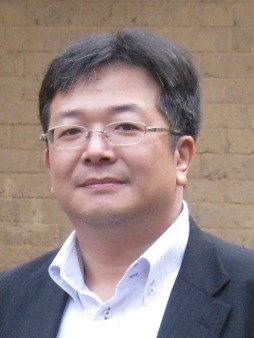
Yasunori AKASHI, PhD [JPN]
Vice-chairman, NPO Building Services Commissioning Association
Professor, The University of Tokyo
Professor Akashi graduated from the master’s course of the department of architecture, the University of Tokyo (UTokyo) in 1992 and obtained his Ph.D. from the UTokyo in 1996. He began working as an assistant of professor at Kyushu University in 1992 and was promoted to a professor in 2009. He has moved to the UTokyo in 2013. He specializes in building thermal environment and air conditioning systems. His laboratory researches building and community energy systems using big data and information technology, and mainly focuses on high-efficiency energy system operation and use of renewable energy for energy saving and de-carbonization, creation of healthy and comfortable thermal and air environments, and quantification of effects of measures based on social dynamics and stakeholder decision-making. He is contributing to the development of Cx from an academic perspective as a vice-chairman of Building Services Commissioning Association (BSCA) and is also working on the training of building services engineers as a president of Japanese Association of Building Mechanical and Electrical Engineers (JABMEE).
Welcome speech14:00-14:10 (JST)
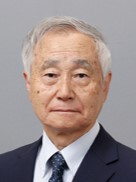
Harunori YOSHIDA, PhD [JPN]
Chairman, Non-Profit Organization Building Services Commissioning Association
Professor emeritus, Kyoto University
Professor Harunori Yoshida has made great contributions in the field of applications of building simulation on research projects of significant scope especially in energy conservation of HVAC systems. He developed many new simulation based methodologies, such as automatic fault detection of air distribution systems, air-conditioning load prediction, total optimization of a heat source system, etc. His interest is mainly in existing building energy conservation rather than newly constructed buildings. He has been involved in many commissioning projects of existing buildings as a commissioning authority focusing on energy conservation. He has served for many councils of municipal energy conservation program as a chairman and advisor. He has also made fundamental contribution in the field of building science mainly related to air-conditioning load calculation. He invented very unique computational approach in most of his work. For these contributions he received many awards from the academy in his country and internationally. He is a fellow of IBPSA, International Building Performance Simulation Association, and SHASE, The Society of Heating, Air-Conditioning and Sanitary Engineers of Japan. Now he is leading NPO organization, Building Services Commissioning Association of Japan, as the chairman to promote energy conservation in his country.
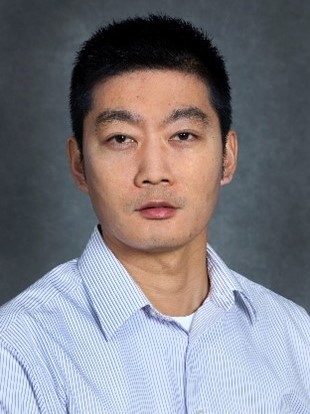
Xiufeng PANG, PhD [CHN]
Co-founder and secretary-general, The China Professional Committee of Building Commissioning and Operations
Dr. Pang is the deputy chief engineer at the Institute of Building Environment & Energy, CABR, and an adjunct Professor at the Beijing University of Technology. He is a registered mechanical engineer in the State of California. His research includes building energy simulation, automated building commissioning, fault detection and diagnosis, energy systems optimization and smart buildings. Prior to joining CABR, he worked as a principal researcher at the Lawrence Berkeley National Laboratory for 9 years. He is the Cx expert of ISO TC205, and co-founder and the secretary-general of the China Professional Committee of Building Commissioning and Operations (CCBCO). He has been actively involved with ASHRAE. He was the voting member of Technical Committee (TC) 7.6 – Building Energy Performance. He received his B.S. and M.S. degrees in HVAC engineering from the Harbin Institute of Technology, China in 1999 and 2003 respectively; and earned his Ph.D. in Architectural Engineering from the University of Nebraska at Lincoln in 2008. He has published over 60 journal and peer-reviewed conference papers.
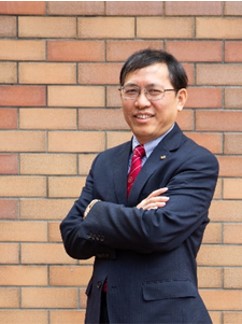
Shengwei WANG, PhD [HKSAR]
FIBPSA, FCIBSE, FHKIE
Director, Research Institute for Smart Energy (RISE), The Hong Kong Polytechnic University
Chair Professor, Building Services Engineering and Otto Poon Charitable Foundation Professor in Smart Building
Prof. Wang is the director of Research Institute for Smart Energy (RISE) and leading the building energy and automation research in the university, in the areas of energy system control optimization, system design optimization and building system diagnosis & commissioning. He has secured over 40 research grants, including one collaborative research fund and 17 general research funds from Hong Kong RGC. He authored/co-authored four books and published over 330 papers in refereed journals (including over 240 papers in SCI journals). He was one of the top 150 highly cited scholars worldwide in “Energy Science and Engineering” reported by Elsevier in 2016 based on Scopus and ranked No. 22 in “Building and Construction” in the world in 2020 according to Stanford. He has also received over 20 million HKD from industry for applied energy research and applications. He has conducted a large number of energy optimization and commissioning projects successfully for new buildings and existing buildings in Hong Kong, such as International Commerce Centre (ICC), hotels, airport buildings, hospitals, industrial buildings, MTR underground station as well as buildings in PolyU campus, with energy savings from 15% to 40% and maximum annual energy saving of over 10M kWh per individual building.
Special lecture
Commercialization of Commissioning
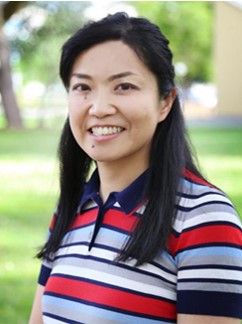
Hiroko Masuda, PhD, CEM [USA]14:10-14:40 (JST)
Energy Project Manager, Facilities Management, The University of California, Davis
Dr. Masuda is an Energy Project Engineer in the Energy & Engineering department at UC Davis Facilities Management, where she conducts in-house commissioning and implements energy efficiency measures for the campus buildings. Her current focus is setting up useful analytics on SkySpark. Before joining UC Davis in 2018, she was with the Energy Systems Laboratory at Texas A&M University for 11 years while pursuing her Master’s degree and Ph.D. in mechanical engineering, working on energy data analyses, M&V, and existing building commissioning projects. Prior to moving to the United States, She graduated from the University of Tokyo and started her building automation and energy efficiency carrier with Johnson Controls in 2000. She is a member of BSCA since 2006 and periodically reporting about the U.S. commissioning industry to the audience in Japan.
Commercialization is the process of bringing new products or services to market. After 30 years since the notion of commissioning emerged within the building sector, now everybody agrees on the importance of commissioning. There have been numerous researches and successful flagship projects conducted by people around the world. But when it comes to the commercialization, United States has been one step ahead.
The speaker discusses the players and their roles in the evolution of the commissioning business as well as the light and shadow of the commercialization. The topics in the first National Conference of Building Commissioning in 1993 are used as a guide to review the U.S. commissioning industry’s advancements and challenges.
Each country/region has a different policy, industry structure, and cultural background, so the model in the U.S. is not necessarily applicable. However, it is expected everywhere that the people who work for commissioning projects must be compensated well enough. This talk intends to promote discussion on creating a healthy commissioning market in the countries/regions where the audience from.
Session 1: Cx case
Commissioning of a VAV Air Conditioning System in Meirui Building in Beijing
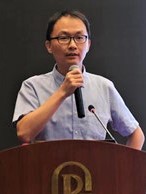
Zheng WEI, PhD [CHN]14:40-14:55 (JST)
Deputy Director, Center for Engineering Consultant & Commissioning, Institute of Building Environment and Energy, China Academy of Building Research
Dr. Wei is the deputy director of the Center for Engineering Consultant & Commissioning, China Academy of Building Research. He has 16 years of work experience in building energy efficiency technologies with long-term commitment to standard research and development in building energy-saving technologies, products and applications. He participates in the formulation and revision of about 10 China national standards and industry standards, including the national standard "Building Energy Standards", the industry standard "Technical Regulations for Variable Air Volume Systems", National Standards "Air Handling Units", and "Fan Coil Unit" and Beijing local standard "Technical Regulations for Energy Monitoring System for Large Public Buildings". He is familiar with Chinese building energy-saving field and HVAC product standard specification system. He participates in several China National Science and Technology Support Programs, National Development, Global Environment Facility (GEF) Project, Sino-US Clean Energy R&D Center Project (CERC) and The US Asia Pacific Clean Energy Partnership Program (APP). As a project manager and technical director, he has participated in and participated in the commissioning consulting projects of Mechanical Electrical and Plumbing systems of many large government and commercial projects across the country. He is familiar with the construction system and standard system of Chinese commercial projects and has rich experience in project management and execution.
I will introduce the basic situation of this project and the implementation process of the commissioning consultant project, focusing on the problems and diagnostic process in the commissioning process, and finally summarize the commissioning standard framework applicable in China.
The Recent Retro-commissioning (RCx) Development in Hong Kong
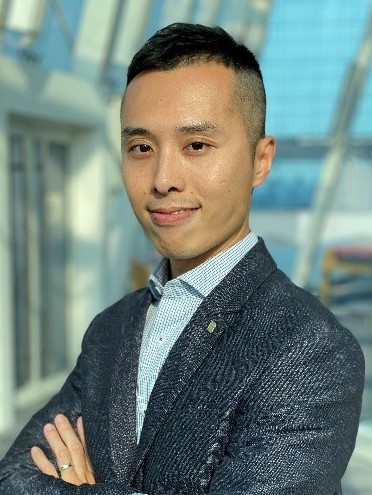
Ir Chris LO [HKSAR]14:55-15:10 (JST)
Electrical and Mechanical Services Department, The Government of the Hong Kong Special Administrative Region, Hong Kong, China
Mr Chris LO is an engineer with Electrical and Mechanical Services Department, HKSAR Government. He has over 10 years’ experience in building services design, operation and maintenance. Mr LO is currently engaged in publicity work in promotion of building energy efficiency and retro-commissioning to stakeholders and public.
In Hong Kong, buildings consume over 93% of the city’s electricity, representing major carbon emission. In this presentation, the speaker will cover energy consumption and climate actions, policy instruments on energy efficiency development, recent development of retro-commissioning (RCx), RCx approaches and resources, tips for RCx and key takeaways.
Existing Building Commissioning of Kyoto Station Building: Case Study of Total Commissioning in the Heat Source System Renovation
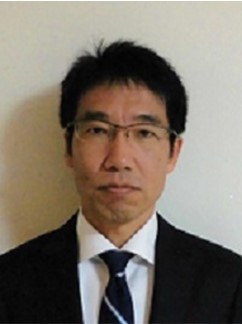
Naomiki MATSUSHITA, PhD [JPN]15:10-15:25 (JST)
Director, Non-Profit Organization Building Services Commissioning Association
Representative, Commissioning Planning Inc.
Dr. Naomiki Matsushita was a chief engineer in designing and manufacturing HVAC/R control systems and building energy management systems at his previous company. While working for the company, he participated as a member of several BSCA commissioning projects and gained practical experience in the commissioning process. The Kyoto Station Building Project is one of them. He started his own company providing building commissioning services in 2018, and his company which name is “Commissioning Planning Inc.” has provided some new building commissioning projects and the existing building commissioning projects, including ongoing. He also provided building automation system renovation commissioning based on his area of expertise. On the other hand, as a board member of BSCA, he is involved in promoting commissioning in Japan.
Kyoto Station Building is a large-scale complex building completed in 1997 as the symbolic gateway of Kyoto city, which is noted worldwide for the old Japanese capital filled with plenty of numerous historic sites. About eighty million travelers pass through this building every year, however, this building consumed the largest primary energy as a single building in the Environmental Model City, Kyoto. In order to break out of this bad reputation by renovating it into a century long sustainable building, a total commissioning process was introduced in all phases in the renovation work of the heat source system, starting from an investigation phase followed by a design phase, a construction phase, and finally a functional performance testing and optimization phase. The targeted energy saving rate of 60% has been successfully achieved, which brought energy cost saving of 0.59 billion yen/year. Although an extra cost of 3.34 billion yen was required to construct the high performance heat source system on to the cost prepared for simple renovation of the deteriorated equipment, the cost will be paid back within 5.7 years (=3.34 / 0.59). Now, on-going commissioning is continued to keep this high performance as long as possible even experiencing variety of operational changes and faults.
Q&A for Session 115:25-15:30 (JST)
Session 2: Cx research
Data-driving modeling on HVAC system operations
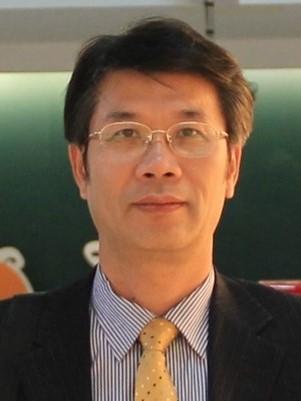
Hongwei TAN, PhD [CHN]15:35-15:50 (JST)
Executive Deputy Director, Green Building and New Energy Research Center,Tongji University
Professor Hongwei Tan is the executive deputy director of the Green Building and New Energy Research Center, Tongji University. He has been engaged in the research and practice of green building/green campus, especisaly fucased on operation date monitoring and modeling for non-residential buildings. He is also a driving force and senior expert in the demonstration project of green campus in China. As the vice chairman and secretary general of China Green University network (CGUN), he has won the first prize of Science and Technology Progress of the Ministry of Education, the special prize of Shanghai Education Science and Technology Achievements, and the Asia International Contribution Award of Japan Air Conditioning Society.
The presentation introduces the application of data-driven modeling method in building commissioning. Among them, the energy consumption prediction adopts the method of double model coupling of white box and black box, and realizes the complementary advantages of their respective models. A data-driven model method is also proposed for the operation optimization of air-conditioning pump group system, and the case data are verified.
Big Data Analytics for Building System Diagnosis, Commissioning and Preventive Maintenance
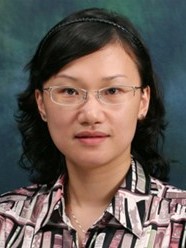
Linda Fu XIAO, PhD [HKSAR]15:50-16:05 (JST)
Founding Member, Research Institute for Smart Energy cum
Professor, Department of Building Services Engineering, The Hong Kong Polytechnic University
Prof. Xiao obtained her double Bachelor degrees in air-conditioning engineering (Major) and marketing (Minor) from Xi'an Jiao Tong University in 1998, her Master degree from Shanghai Jiao Tong University in 2001, and her PhD in Building Services Engineering from the Hong Kong Polytechnic University in 2004. She worked in Ove Arup & Partners Hong Kong Ltd. from 2005 to 2006. She returned to the Hong Kong Polytechnic University as a lecturer in 2006 and was promoted to Professor in 2020.
Prof. Xiao has been doing innovative multidisciplinary research on building energy and automation, with the focus on advanced optimal control and diagnosis of building energy systems. Prof. Xiao conducts pioneering and leading work on applying big data and AI technologies to develop smart, energy-efficient and resilient buildings. She has published over 110 SCI papers including two ESI highly cited papers, and secured 13 external competitive research grants as the PI or Co-PI, including one RGC/Theme-based, one RGC/CRF and one MOST/National Key R&D Programs. She received a number of awards including 2018 Outstanding ICAE Paper Award, Merit Award in 2017 PolyU Distinguished Knowledge Transfer Awards, ASHRAE Technology Award 2014, etc. Prof Xiao’s work also brought significant and measurable building energy savings.
Big data and AI technologies are transforming the world including buildings. Buildings are responsible for over 1/3 of the world primary energy use. Their energy performance has a great impact on global sustainability. Building system diagnosis, commissioning and maintenance have proved to be effective in preventing, detecting and diagnosing various faults/failures and efficiency degradation so as to improve building energy performance. Most conventional methods for them rely much on detailed energy system information which are usually difficult to collect.
Modern buildings are not only energy-intensive, but also information-intensive. The volume of data grows continuously in the building lifecycle and will grow more rapidly with the widespread of IoT devices installed in buildings. The huge volume of data together with the powerful AI technologies stimulate the R&D on novel data-driven knowledge and methods for building system management. This talk will discuss the new opportunities and challenges confronting building system diagnosis, commissioning and maintenance in the big data era. A framework for big building data analysis empowered by AI will be introduced, which can be used to guide the development of big data driven methods for building system management. This talk will present several use cases, including big-data driven predictive maintenance, frequent pattern recognition and rare event detection as well as similarity-based benchmarking, with the aim of inspiring innovative R&D on using big building data for smart building system management.
Research on commissioning methods for ZEB (Net Zero Energy Building)
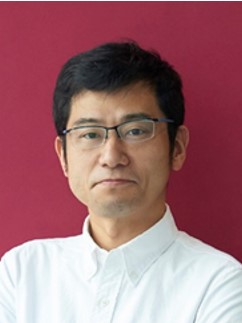
Satoki HOSHINO, M.Eng. [JPN]16:05-16:20 (JST)
Senior Director, Environmental & MEP Engineering, NIHON SEKKEI, INC.
Satoshi Hoshino is the managers of Environment & MEP Engineering Dept. Nihonsekkei, INC. and an engineer in the field of environment and MEP. he has been oriented towards the design of environmentally conscious buildings. And he also works as a consultant for CO2 reduction. Representative works are Tochigi Prefectural Government Building, Akita City Hall, Shibuya Government Building and Shibuya Public Hall, and ZEB (Net Zero Energy Building) was realized by combining passive design and high-efficiency equipment system. He has experience in work as an environmental engineer on building design using simulation technology and performance verification after completion. He also has experience as a consultant on environmental policy in Tokyo, a developer's large-scale building and commercial facility energy-saving renovation and optimization consultant.
ZEB (Net Zero Energy Building) is defined in Japan as a building with significantly reduced annual energy consumption. ZEB is realized using natural energy and architectural design such as solar shading, heat insulation, natural ventilation, and natural lighting, and the introduction of highly efficient equipment systems and energy-creating equipment such as solar power generation. Many advanced technologies have been introduced into ZEB. However, since it is a complicated and difficult technology, we think it may be difficult to say that good Cx is realized. One of the reasons is that the functional performance test method has not been prepared yet for the passive method and the system related to renewable energy, which are often introduced in ZEB. We report on the points of Cx of ZEB, functional performance tests and its standard specifications of the main technologies for ZEB.
Q&A for Session 216:20-16:30 (JST)
Session 3: Cx business
Building Commissioning in China: Progress and Prospects

Xiufeng PANG, PhD [CHN]16:30-16:45 (JST)
Co-founder and secretary-general, The China Professional Committee of Building Commissioning and Operations
Dr. Pang is the deputy chief engineer at the Institute of Building Environment & Energy, CABR, and an adjunct Professor at the Beijing University of Technology. He is a registered mechanical engineer in the State of California. His research includes building energy simulation, automated building commissioning, fault detection and diagnosis, energy systems optimization and smart buildings. Prior to joining CABR, he worked as a principal researcher at the Lawrence Berkeley National Laboratory for 9 years. He is the Cx expert of ISO TC205, and co-founder and the secretary-general of the China Professional Committee of Building Commissioning and Operations (CCBCO). He has been actively involved with ASHRAE. He was the voting member of Technical Committee (TC) 7.6 – Building Energy Performance. He received his B.S. and M.S. degrees in HVAC engineering from the Harbin Institute of Technology, China in 1999 and 2003 respectively; and earned his Ph.D. in Architectural Engineering from the University of Nebraska at Lincoln in 2008. He has published over 60 journal and peer-reviewed conference papers.
This presentation will introduce the current status of the building commissioning development in China from the following aspects: standardization, market, technology development, policy and regulations.
Commissioning - Building Owner’s Perspective and Practice in ICC
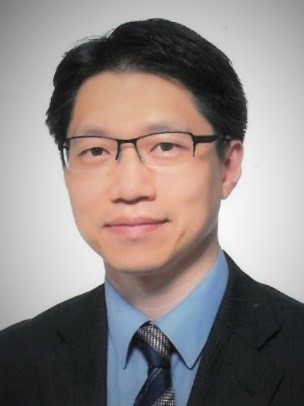
Lewis LAM, M.Eng. [HKSAR]16:45-17:00 (JST)
Deputy General Manager (Property Management), Kai Shing Management Services Ltd.
Lewis Lam is Deputy General Manager (Property Management) of the International Commerce Centre. Over the years, he has been working with the management team to improve the buildings' operational performance and business continuity. Lewis Lam has a master degree in housing management, a master degree in real estate and a master degree in building engineering. He is a member of the Hong Kong Institute of Housing, a member of the Royal Institution of Chartered Surveyors, a Registered Professional Housing Manager, a BEAM Pro and a Certified Business Continuity Practitioner.
Smart and energy efficient building is a major government initiative and a main focus in the strategic development plans of the Hong Kong SAR government, such as ‘Hong Kong Smart City Blueprint’ and ‘Hong Kong 2030+: A Smart, Green and Resilient City Strategy’. The Electrical and Mechanical Services Department (EMSD) is promoting building commissioning actively and has issued guidelines to encourage and enforce the Retro-Commissioning actions. As building owners and facilities managers, we have our own perspectives and concerns under the government policies, market and society environment, economic issues and cooperate image in adopting different commissioning measures.
ICC has been actively and effectively implementing the important government initiatives of commissioning. We have been working closely and continuously with the Building Energy and Automation Research (BEAR) Laboratory from the Hong Kong Polytechnic University. Significant amount of energy saving has been achieved, particularly in the central air-conditioning system, through the development, test, validation and implementation of many advanced and practical energy saving measures.
This presentation will show our perspectives and concerns on different commissioning measures as the building owner and manager, based on the practical experiences in ICC. The related benefits and impacts will also be presented.
Functional performance test project at Nagasaki Prefectural Office
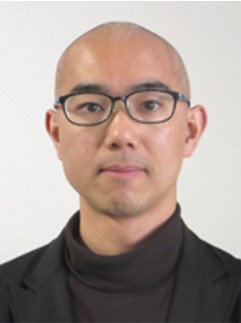
Daisuke SUMIYOSHI, PhD [JPN]17:00-17:15 (JST)
Associate Professor, Faculty of Human-Environment Studies, Kyushu University
Prof. Daisuke Sumiyoshi obtained his PhD (Engineering) degree from Kyushu University in 2006. After that, he became a researcher at Kyushu University and worked for two years at Building Research Institute of Japan, before becoming an assistant professor at Kyushu University in 2010. He was promoted to associate professor in 2014. Professor Sumiyoshi's research fields cover a wide range of fields, including optimization and commissioning of HVAC&R system, analysis of household fuel cells, behavioural change for energy-saving, and energy analysis of urban scale. In the commissioning of HVAC&R system, he has been working on the development of functional performance test methods for VRF system. He is active in commissioning research and practice, including serving as a commissioning advisor to the Nagasaki Prefectural Government.
Functional performance test is indispensable for ensuring the energy performance of the building and are the most important test in the commissioning process. However, there are few examples in Japan, and there are a few companies whose livelihood is functional performance testing. Under such circumstances, the order for the functional performance test conducted by the Nagasaki Prefectural Government in 2016 was probably the first attempt by an administrative agency in Japan. In this presentation, I will introduce the details of the efforts from the perspective of the ordering party, such as the background to the ordering and the issues in drafting the functional performance test, including the impressions of the parties concerned. In addition, the results from the contractor's perspective, such as the creation of the functional performance test plan, the test preparation, the content of the test actually conducted, and the utility that the contractor thinks, will be explained.

